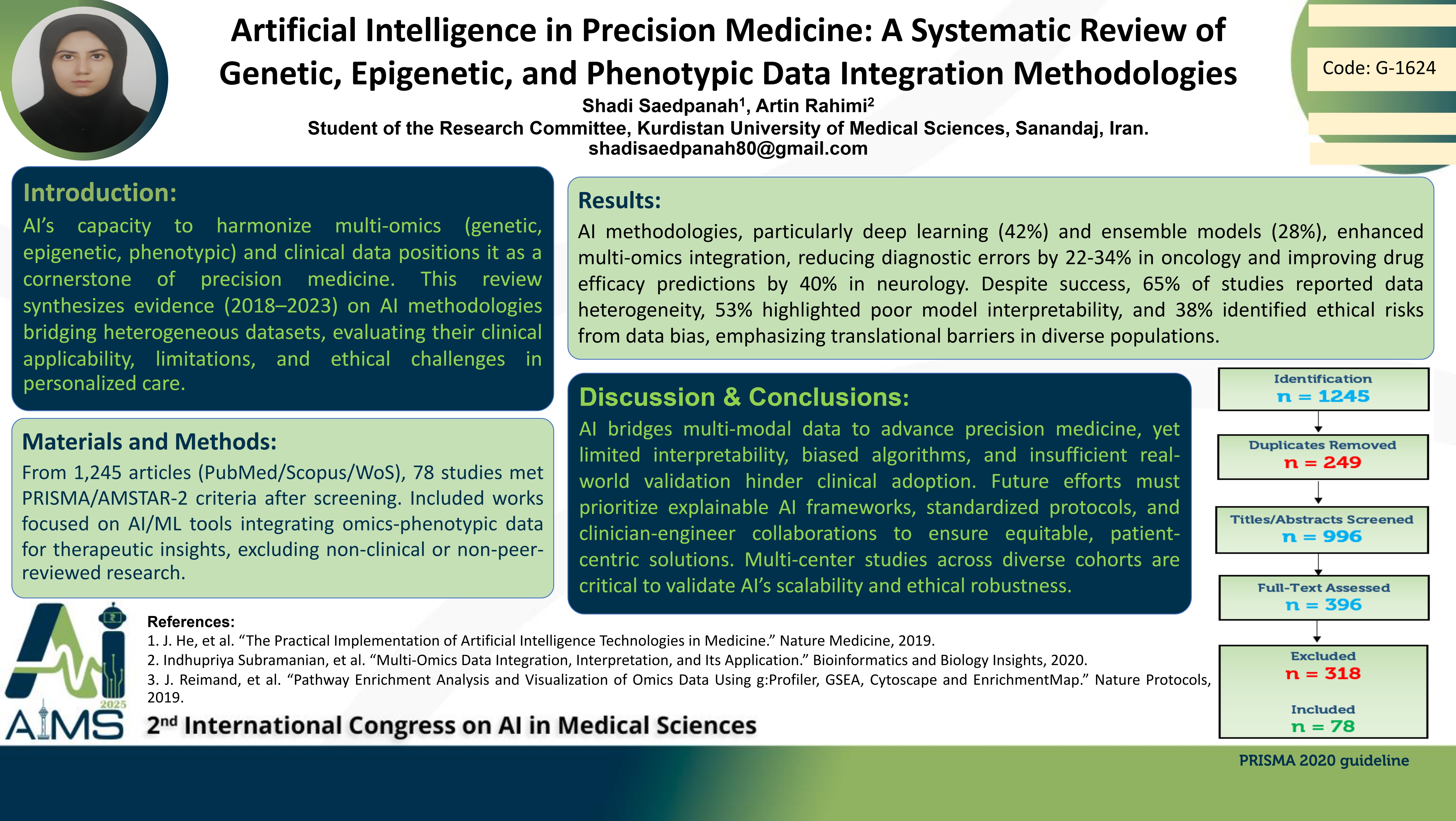هوش مصنوعی در پزشکی شخصیمحور: یک مرور سیستماتیک از روشهای یکپارچهسازی دادههای ژنتیکی، اپیژنتیکی و فنوتیپی
کد: G-1624
نویسندگان: Shadi Saedpanah * ℗, Artin Rahimi
زمان بندی: زمان بندی نشده!
برچسب: تشخیص و درمان سرطان
دانلود: دانلود پوستر
خلاصه مقاله:
خلاصه مقاله
Background and aims: The rapid expansion of multi-modal health data—including genetic, epigenetic, and phenotypic information—has created unprecedented opportunities for personalized medicine. However, integrating these diverse data types into clinically actionable insights poses significant challenges. This systematic review evaluates the role of artificial intelligence (AI) as a crucial enabler of precision medicine, concentrating on its potential to facilitate the thorough integration of multi-omics and clinical datasets. The review aims to outline essential methodologies, highlight practical applications, and identify gaps within the current research landscape. Method: A systematic literature search was conducted across PubMed, Scopus, and Web of Science from 2018 to 2023, utilizing keywords such as “Artificial Intelligence,” “Precision Medicine,” and “multiomics.” The inclusion criteria prioritized peer-reviewed studies focusing on AI and machine learning tools designed to harmonize genetic, epigenetic, and phenotypic data in therapeutic development. Following the screening of 1,245 articles, 78 studies met the eligibility criteria. Data extraction was performed under PRISMA guidelines, and quality assessment was conducted using the AMSTAR-2 framework. Results: AI-driven methodologies, especially deep learning techniques (42% of studies) and ensemble models (28%), have demonstrated greater effectiveness in cross-modal data integration compared to traditional statistical methods. Key applications include the discovery of predictive biomarkers (e.g., such as risk stratification in oncology) and dynamic treatment personalization (e.g., autoimmune disease management). However, challenges persisted, including data heterogeneity, noted in 65% of studies, limited interpretability of AI models (53%), and ethical concerns surrounding data bias (38%). Case studies illustrated that AI can reduce diagnostic errors by 22% to 34% in oncology and improve drug efficacy predictions by 40% in neurology. Conclusion: AI is revolutionizing precision medicine by integrating multi-omics data with clinical workflows. Nonetheless, considerable technical and translational challenges persist. To overcome these hurdles, future research should prioritize the development of explainable AI frameworks, standardized data harmonization protocols, and real-world validations across diverse populations. Close collaboration between computational scientists and clinicians is essential to translate algorithmic advancements into equitable, patient-centered healthcare solutions.
کلمات کلیدی
Artificial Intelligence, Precision Medicine, Multiomics, Biomarkers
